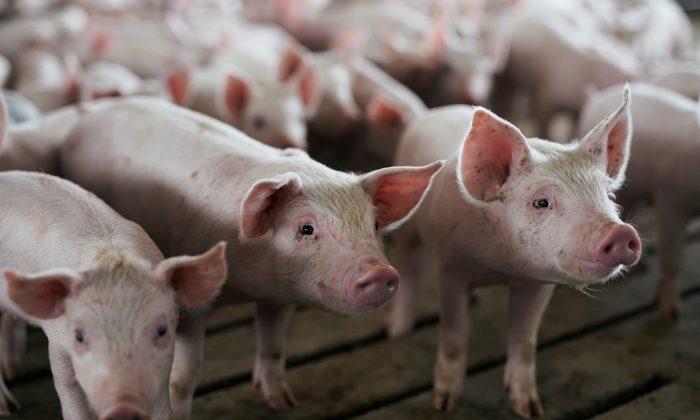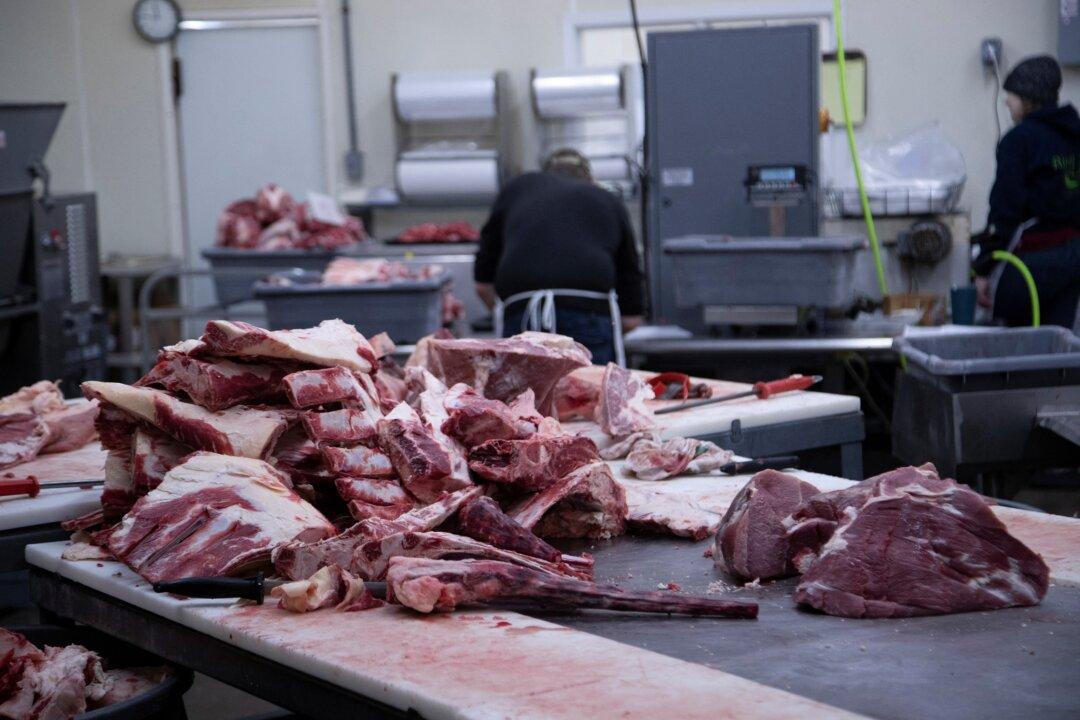SHANGHAI—China will exempt some agricultural products from additional tariffs on U.S. goods, China’s official Xinhua News Agency said on Sept. 13, in the latest sign of easing Sino-U.S. tensions before a new rounds of talks aimed at curbing a bruising trade war.
The United States and China have both made conciliatory gestures, with China renewing purchases of U.S. farm goods and U.S. President Donald Trump delaying a tariff increase on certain Chinese goods.
China had imposed additional tariffs of 25 percent on U.S. agricultural products including soybeans and pork in July 2018. It raised tariffs on soybeans by a further 5 percent and on pork by a further 10 percent on Sept. 1.
“China supports relevant enterprises buying certain amounts of soybeans, pork and other agricultural products from today in accordance with market principles and WTO rules,” Xinhua said, adding that the Customs Tariff Commission of China’s State Council would exclude additional tariffs on those items.
China has “broad prospects” for importing high-quality U.S. agricultural goods, Xinhua reported, citing unnamed authorities.
An outbreak of deadly African swine fever, which has cut China’s pig herd by a third since mid-2018, has propelled Chinese pork prices to record levels and left the country in need of replacement supplies from overseas.
China is also expected to step up purchases of soybeans, historically the most valuable U.S. farm export which China has largely avoided buying since the trade war began last year.
Before the announcement of additional tariff exemptions, Chinese firms bought at least 10 boatloads of U.S. soybeans on Thursday, the country’s most significant purchases since at least June.
Lower-level U.S. and Chinese officials are expected to meet next week in Washington before talks between senior trade negotiators in early October.
Trump said on Thursday he preferred a comprehensive trade deal with China but did not rule out the possibility of an interim pact.





